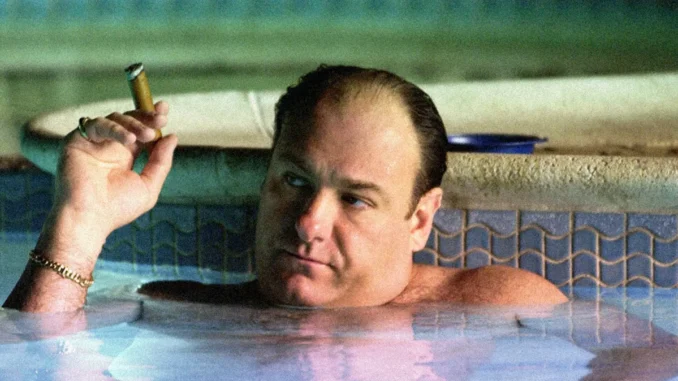
If there’s one thing fans of The Sopranos can agree on, it’s that the series finale sparked endless debate. Did Tony Soprano die? Was the cut to black an artistic choice or a sign of his demise? Well, David Chase, the mastermind behind the show, has recently shed some light on Tony’s fate, and it’s worth diving into.
The Controversy of the Cut to Black
When The Sopranos wrapped up in 2007, the final scene left viewers scratching their heads. As Tony sat in a diner, surrounded by family, the screen suddenly went black, leaving audiences in a stunned silence. The lack of closure was jarring, and for many, it felt like an unsatisfactory conclusion to a groundbreaking series.
Chase’s choice to end the show in such a way was bold. Fans immediately speculated whether Tony was killed in that moment or if he simply continued his life as a mob boss. The ambiguity became a part of pop culture lore, igniting discussions that still echo in fan forums today.
David Chase’s Original Plan
In a recent interview with The Hollywood Reporter, David Chase revealed that he initially had a different fate in mind for Tony Soprano. Chase had envisioned a scene reminiscent of the show’s iconic intro, where Tony would be driving back to New York for a meeting—one that would ultimately lead to his death.
Imagine this: Tony, driving down the New Jersey Turnpike, the same way he had done countless times before, only to meet his end in a twist of fate. It would have been poetic, a mirror to his entrance into the series, leaving behind the chaos and complexities of his life as a mob boss.
However, Chase ultimately decided against this direction. He wanted to keep the audience guessing and create a moment that would resonate beyond the screen. He knew that this ambiguity would spark debates and discussions, adding layers to Tony’s character and the overall narrative.
Themes of Death and Ambiguity
Throughout the series, The Sopranos cleverly foreshadowed Tony’s potential demise. Characters frequently discussed death in ways that suggested it could come at any moment, much like the abrupt cut to black in the finale. This thematic element is what made the ending resonate with viewers—it echoed the unpredictability of life itself.
In one early episode, Tony mentions how people in the mob often view death as a sudden event, catching them off guard. This idea permeates the series, suggesting that life can change in an instant. The finale serves as a masterclass in storytelling, encapsulating this philosophy perfectly.
Symbolism in the Finale
The final moments of the series are packed with symbolism. For instance, as Tony lies on the bed, the positioning echoes that of someone lying in a coffin. It’s a chilling visual that reinforces the audience’s fears about his fate. Additionally, the diner setting serves as a microcosm of his life—filled with both family and danger, a blend of the mundane and the lethal.
This layered storytelling is what made The Sopranos groundbreaking. It wasn’t just about mob life; it delved into the complexities of family, loyalty, and the inevitable nature of death. Chase’s choice to leave Tony’s fate ambiguous further deepened the narrative, encouraging viewers to ponder the meaning behind it all.
The Legacy of the Finale
The impact of the finale extends far beyond its initial reception. When it first aired, many viewers were frustrated, yearning for a concrete conclusion. But as time has passed, the ambiguity has grown to be one of the show’s defining features. It forced audiences to confront their expectations of television storytelling and redefined what a series finale could be.
In the years since, other shows have followed in its footsteps, with finales that leave much to interpretation. Think of how Breaking Bad ended—while it provided a clear resolution, discussions about Walter White’s fate still linger. Fans often wonder if he escaped his life or met a different end. This kind of open-ended storytelling can be traced back to Chase’s bold choices in The Sopranos.
The Enduring Debate
As fans continue to discuss Tony Soprano’s fate, it’s clear that the conversation around the series finale will never truly fade. It has spurred countless theories, analyses, and even academic studies about its significance in television history. This level of engagement speaks to the power of storytelling and the connection audiences have with well-crafted characters.
Conclusion: A Lasting Legacy
David Chase’s revelations about Tony Soprano’s fate add an intriguing layer to a series that has already left an indelible mark on television. By opting for ambiguity rather than a clear-cut ending, Chase not only created a conversation piece but also challenged the norms of storytelling in the medium.
As viewers continue to explore the complexities of Tony’s character and the themes of The Sopranos, it’s clear that the show will remain a cultural touchstone for years to come. The beauty of its storytelling lies in the questions it raises and the discussions it inspires, keeping the legacy of Tony Soprano alive and well.
